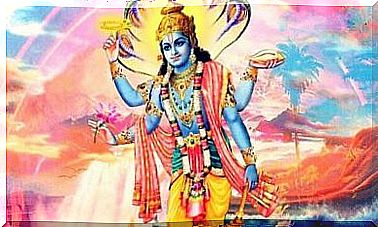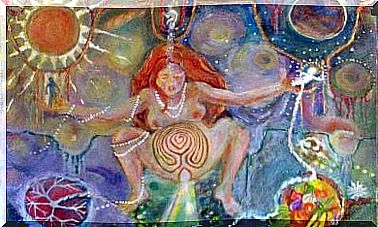Georg Friedrich Wilhelm Hegel: A Philosopher Of Idealism
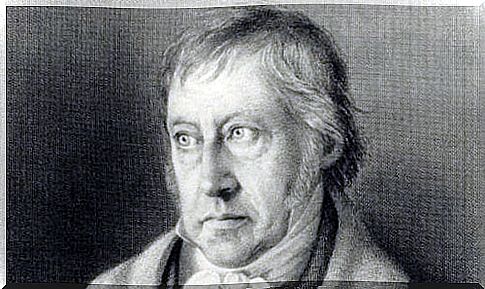
Georg Wilhelm Friedrich Hegel’s ideas shaped philosophy in Western Europe and Russia in the 19th century to such an extent that we can speak of a time before or after Hegel. Hegel was an admirer of Plato, Descartes and Kant, and he was one of the most important exponents of German idealism. Indeed, Hegel’s ideas led to a breakthrough in the theory of the evolution of consciousness.
Most people know that reading Hegel’s writings is not easy. His most famous book, The Phenomenology of Spirit (1807), is an example of his difficult-to-understand but imaginative writing. In this book, Hegel used the dialectical method to understand the movement of consciousness.
We want to state that many Hegel connoisseurs believe that the theses of this philosopher were radical and inspired German nationalism. Adolf Hitler, for example, advocated the Hegelian philosophy because he found a justification for his actions in quotations such as “The Germanic spirit is the spirit of the new world, the purpose of which is the realization of absolute truth […]” .
“Education is the art of making people moral.”
Georg Wilhelm Friedrich Hegel
But Hegel’s ideas were also very influential beyond that. His writings triggered a veritable storm of theoretical and philosophical reactions: he inspired Marxist materialism and laid the foundation for Søren Kierkegaard’s existentialism, Friedrich Nietzsche’s metaphysical concepts and even Theodor W. Adorno’s negative dialectic.
In essence, Hegel’s philosophy was based on the idea that there aren’t many barriers between us and the world. Hegel wanted to express that we are the creators of our own truth. In addition, Hegel popularized the idea of dialectic. This relates to history and our own thoughts, which are formed from a continuous movement between solutions and contradictions.
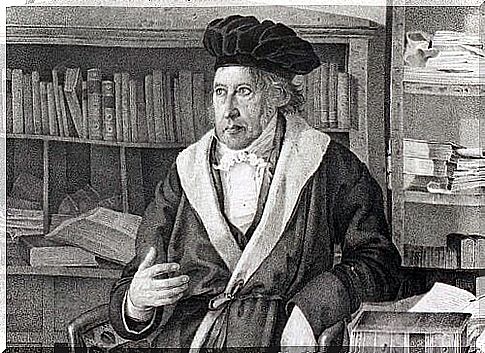
The philosopher Georg Wilhelm Friedrich Hegel
Georg Wilhelm Friedrich Hegel was born on August 27, 1770 in Stuttgart to a Protestant family. In the course of his life he made friends with influential people such as the philosopher Friedrich von Schelling and the poet Friedrich Hölderlin. He was also an admirer of Immanuel Kant.
Hegel studied philosophy and theology at the University of Tübinge. After his father’s death, he received an inheritance that enabled him to concentrate fully on the academic world. This happened shortly after Hegel submitted his dissertation on the orbits of planets in 1801. The inheritance allowed him to deepen his knowledge in areas such as math, logic and law.
“Only by realizing great goals does a person reveal his or her strong character.”
Georg Wilhelm Friedrich Hegel
In 1807, Hegel published The Phenomenology of Spirit , a work in which he examined aspects such as consciousness, perception and knowledge. In this work he emphasized what was real to him: reason. Soon after this publication was published, universities in Heidelberg and Berlin asked him to give lectures.
Success and Cholera
Hegel’s lectures became famous all over Europe. His students claimed that he could explain almost anything. They also said that he was comparable to Plato himself.
His analyzes of legal philosophy and the state system encouraged many people to grapple with Hegel’s various approaches and theories. The cultural elite and politicians of the day saw him as a person from whom to learn and be inspired.
Hegel died of cholera on November 14, 1831.
The philosophy of Georg Wilhelm Friedrich Hegel
Hegel was best known for linking history with philosophy. At that time, the philosophical discourses started from a void that wanted to achieve a sense of truth without taking important events into account. In fact, events like the French Revolution and the shift in mentality were crucial developments that inspired Hegel.
Let us now consider the most relevant concepts of its philosophical legacy.

idealism
It is quite common to see Hegel as the representative of German idealism. But what does that really mean? Idealism is a philosophical theory that advocates the following ideas:
- Ideas are vital and can exist independently of one another.
- What surrounds us would not exist if we humans had not noticed it and did not know anything about it.
- The world is beautiful. It is metaphysically perfect because beauty itself symbolizes reason.
“An idea is always a generalization, and generalization is a quality of thinking. To generalize is to think. “
Georg Wilhelm Friedrich Hegel
Hegel also believed that happiness shouldn’t be the main goal in life. For him, knowledge and reason were the most important achievements.
dialectics
Hegel defined reason as a dialectical process. That is, one can hypothesize and later disprove it to overcome a potential contradiction. The philosopher therefore believed that the dialectical movement involved the following steps:
- Thesis: The establishment of a thesis.
- Antithesis: The negation of the thesis.
- Synthesis: Overcoming the contradiction.
freedom
Hegel was convinced that authentic freedom had to start from a very specific framework, namely from the state itself. The state should enable an individual to feel complete and, in turn, enable the person to acquire an authentic feeling of dignity. Therefore, people need a legal framework in order to be able to “submit”.
Within this Hegelian scheme, individuals can achieve authentic freedom through Christianity.
“To be free is nothing, to become free is everything.”
Georg Wilhelm Friedrich Hegel
logic
Hegel’s most famous thesis is that of contradiction. According to this principle, a thing is itself and is not at the same time.
That means we are all changing. We all transform and move from one state to another based on our own vitality. In short, life is a constant contradiction in and of itself.
aesthetics
Hegel made an interesting distinction between natural and artistic beauty. He related the former to an exquisite kind of beauty that is characterized by authenticity and freedom. This type of beauty essentially represents the natural spirit of things. The latter form of beauty springs from our minds and enables us to conduct aesthetic research in order to acquire knowledge.
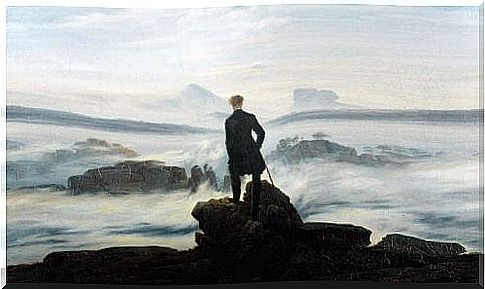
Georg Wilhelm Friedrich Hegel is one of the most remarkable philosophers of all time. Although many people admire his work, some people are also very skeptical about it. Perhaps this is due to Hegel’s ideas regarding the German state, its idealism or Eurocentrism. After all, there are people who, because of the complicated nature of the subject, do not dare to approach Hegel’s writings from the outset. However, we encourage you to trust yourself: his ideas mark a turning point for Europe. To this day, the book The Phenomenology of Mind is very worthwhile reading.
“Passion alone would not achieve anything great in the world.”
Georg Wilhelm Friedrich Hegel





